News
Delhi coronavirus fears mount as hospital beds run out

Ashwani Jain succumbed to the coronavirus in an ambulance as his family pleaded with several hospitals to take him in, the latest victim of the pandemic sweeping through the Indian capital and exposing a deadly shortage of hospital beds.
“They don’t care whether we live or die,” said his 20-year-old daughter Kashish, whose uncle, Abhishek, sat with Ashwani in the back of the vehicle on its desperate journey across Delhi.
“It won’t matter to them but I have lost my father, he was the world to me,” she said, tears welling up as she showed a photo of him.
All of the hospitals the 45-year-old businessman’s family tried refused to admit Ashwani, even though an app set up by the city government indicated Covid-19 beds were free, Abhishek told AFP.
With surging infections highlighting the precarious state of the Indian healthcare system, the death of Jain and others like him have heightened anxiety in Delhi over the growing threat.

More than 1,200 have died from the virus in the Indian capital and more than 1,000 new cases are being reported each day.
Mortuaries are overflowing with bodies and cemeteries and crematorium staff say they cannot keep up with the backlog of victims. Some local Delhi councils say the real death toll is twice the number given by the regional government.
Indian media has been full of tragic stories of people dying after being turned away by hospitals.
One pregnant woman died as she was being shuttled between hospitals. A 78-year-old man petitioned the Delhi High Court for a ventilator bed but died before the matter could be taken up.
India has now recorded more than 300,000 coronavirus cases with nearly 9,000 fatalities.
High price for rare beds
Several families have used social media to recount their harrowing experiences after being refused hospital beds.
Jain’s family had joined a noisy, nationwide tribute to health workers, banging pots and pans from rooftops and balconies after a nationwide lockdown started in March. Now they feel abandoned.
“The government is doing nothing. They are just playing with our feelings,” Kashish said.

Jain’s devastated relatives are now waiting to get tested themselves but the Delhi government allows that for only high-risk and symptomatic family members.
The city government has estimated that it could need 80,000 beds by the end of July, and warned hotels and wedding venues that they are likely to be turned into hospitals.
Currently government hospitals have 8,505 designated pandemic beds while private hospitals have 1,441.
But families say they are being forced to spend a small fortune for the few beds that are available.
Suman Gulati, whose father is a coronavirus patient, said she was asked for one million rupees ($13,200) by a private hospital for a bed.
“Once I paid the money getting a bed was not a problem. But arranging such a huge amount of money at such a critical time was,” she told AFP.
“What if I fall sick next, what will I do? Should I sell my property, my jewellery?”
A sting operation by the Mirror Now TV channel showed five Delhi hospitals asking coronavirus patients to pay up to $5,250 in order to be admitted.

Delhi Chief Minister Arvind Kejriwal has accused private hospitals of lying about available beds and promised tough action if they were found extorting money.
On Sunday, Home Minister Amit Shah said 500 of some 20,000 train coaches reserved as coronavirus wards would be “immediately” allocated to the state by the national government, adding some 8,000 beds.
Experts are questioning the city’s handling of the pandemic however.
Virologist Shahid Jameel said Delhi, like other major cities, has not tested enough people. So far, it has covered just one percent of its population.
“At the moment Delhi government is doing everything to make people panic,” he told AFP.
“It should be testing aggressively. I don’t understand the logic of testing only people who are symptomatic. How will you find how much the infection has spread in the community if you don’t test them?”
Shah said after a meeting with the Delhi government Sunday that testing for the virus would be stepped up.
Reporting and photos: AFP
Family
Easter comes alive at Amilla Maldives with family activities
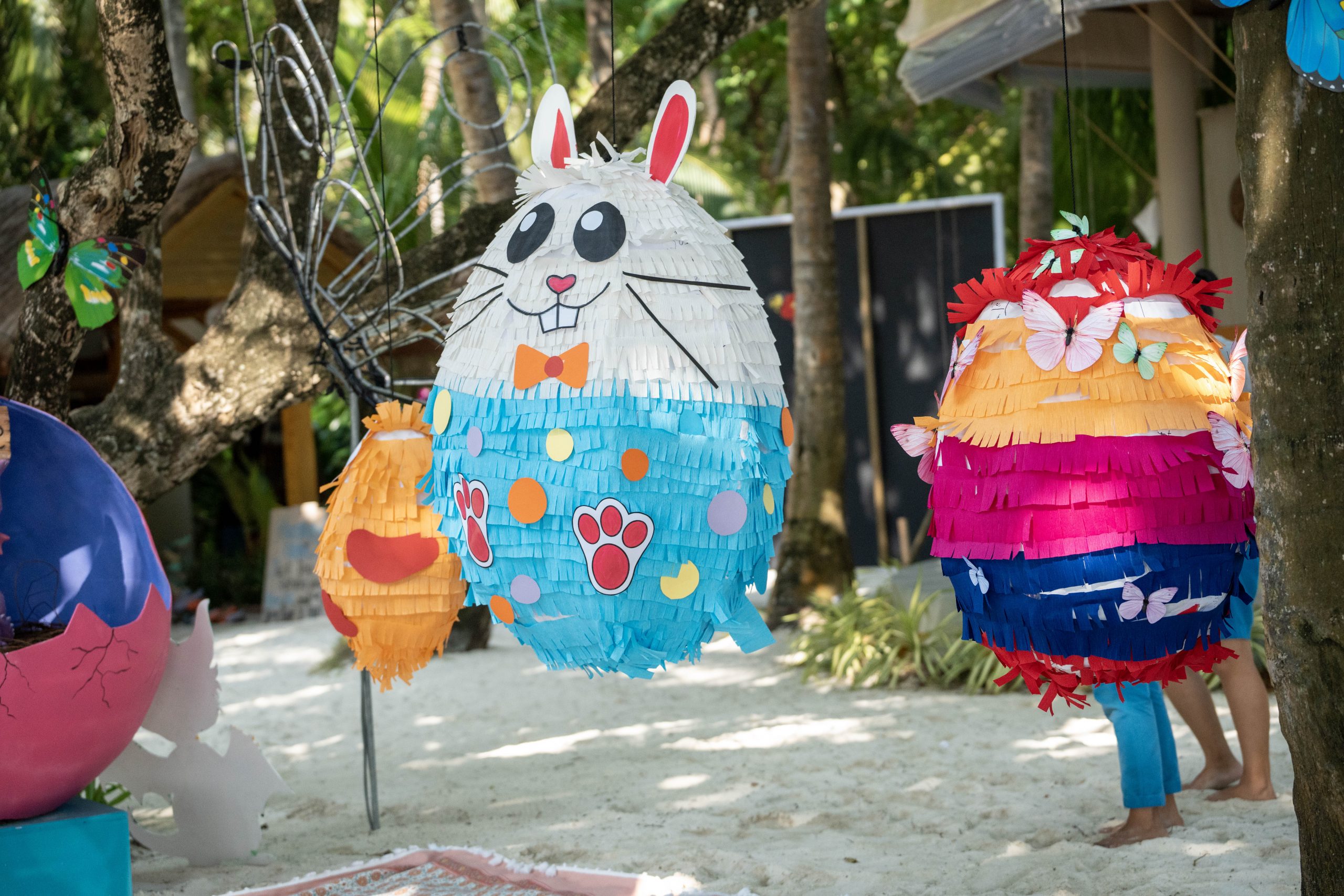
This Easter, Amilla Maldives invites families to enjoy a joyful island journey filled with creativity, discovery and shared moments in the heart of the Baa Atoll UNESCO Biosphere Reserve.
Taking place from 1 to 12 April 2026, the Easter programme follows the story of Paddy the Travelling Bear and his friend Bunny, guiding young explorers through a series of themed activities, playful challenges and creative workshops across the island.

Throughout the celebration, guests can take part in Easter egg hunts and treasure trails, discovering hidden surprises across sandy pathways and beneath the island’s banyan trees. Creative sessions invite little ones to paint, craft and build keepsakes, while interactive games and island adventures encourage curiosity and playful exploration.
The festive programme also includes a variety of family-friendly entertainment and wellness experiences, allowing guests of all ages to enjoy the island in their own way, whether through gentle moments of creativity, active outdoor play or shared family activities.

The festivities culminate on Easter Sunday, when the island comes alive with joyful celebrations, music and activities for the whole family, creating memories to treasure long after the holiday ends.
Surrounded by lush tropical greenery, white sand beaches and vibrant marine life, Amilla Maldives offers a naturally beautiful setting for a memorable Easter escape.
Guests can explore the full Easter programme here. For more information about Amilla Maldives, please visit www.amilla.com.
Cooking
TAPASAKE Maldives hosts Chef Norimasa Kosaka for four-hands dining collaboration
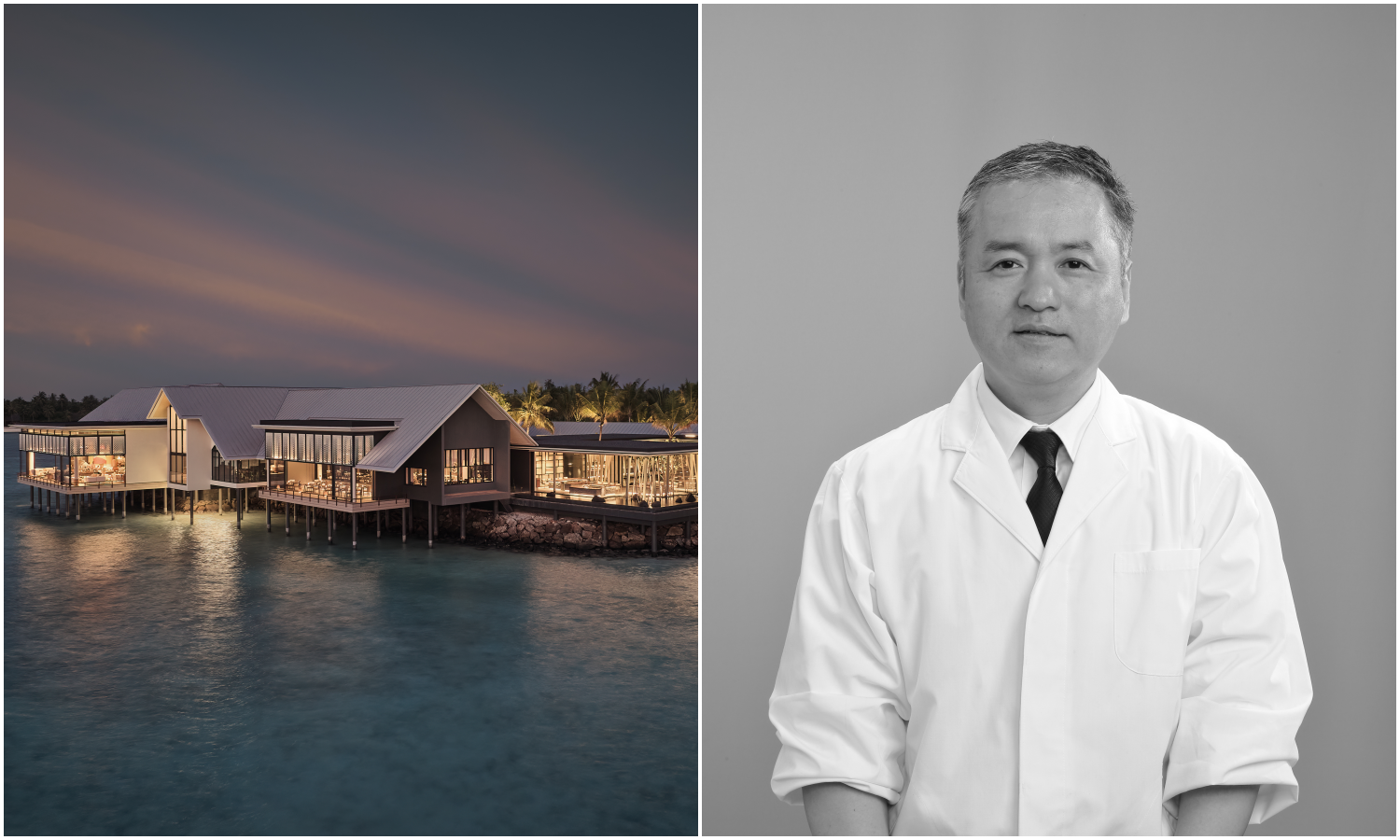
TAPASAKE Maldives, the destination dining restaurant set in the private island of ultra-luxury resort One&Only Reethi Rah, will be welcoming back Japanese Owner Chef Norimasa Kosaka for exclusive dining experiences this March through a Four-Hands Dining Experience with resident Chef Ahmed Jameel, as well as a special sushi night at the iconic overwater restaurant.
The first of its kind since the inception of One&Only Reethi Rah, TAPASAKE Maldives features breathtaking Indian Ocean views, bold contemporary design, and dining experiences that unite the precision of Japan and the soul of the Mediterranean in a flowing exchange of flavour, texture, and culture. In addition to the restaurant in the Maldives, TAPASAKE also operates in Dubai, Mauritius, and Montenegro.
These exclusive collaborations will feature an exciting reunion between long-time colleagues and master-and-student, Chef Norimasa Kosaka and the restaurant’s resident Chef Ahmed Jameel. Chef Nori worked at One&Only Reethi Rah as a chef in TAPASAKE between 2007 to 2009 and now owns and operates the sushi restaurant Mimasaka NORIMASA in Okayama prefecture, Japan, which offers modern Japanese cuisine with a French twist. Originally from Osaka and with over 10 years of international experience, Chef Nori specialises in sushi and hot dishes and is well-loved for his contemporary Japanese style that can appeal to all palates. Chef Nori will be collaborating with resident Chef Ahmed Jameel, a native of the Maldives whose culinary style blends both traditional and contemporary Japanese techniques, a balance he learned under Chef Nori’s tutelage.
Chef Nori and Chef Jameel’s reunion represents a symbolic return of two chefs who were instrumental in shaping the identity of TAPASAKE’s cuisine, both having worked together during the restaurant’s pre-opening and seeing it through various evolutions. Originally a purely Japanese restaurant, both chefs played key roles in TAPASAKE’s turning points from traditional to contemporary Japanese and Peruvian-inspired cuisine to the current concept of Japanese with Mediterranean influences. Akin to a master-student relationship, Chef Jameel credits much of his training of Japanese cuisine to Chef Nori, including traditional Japanese and contemporary approaches, technical competencies like knife skills, and knowledge of and exposure to new produce and ingredients.
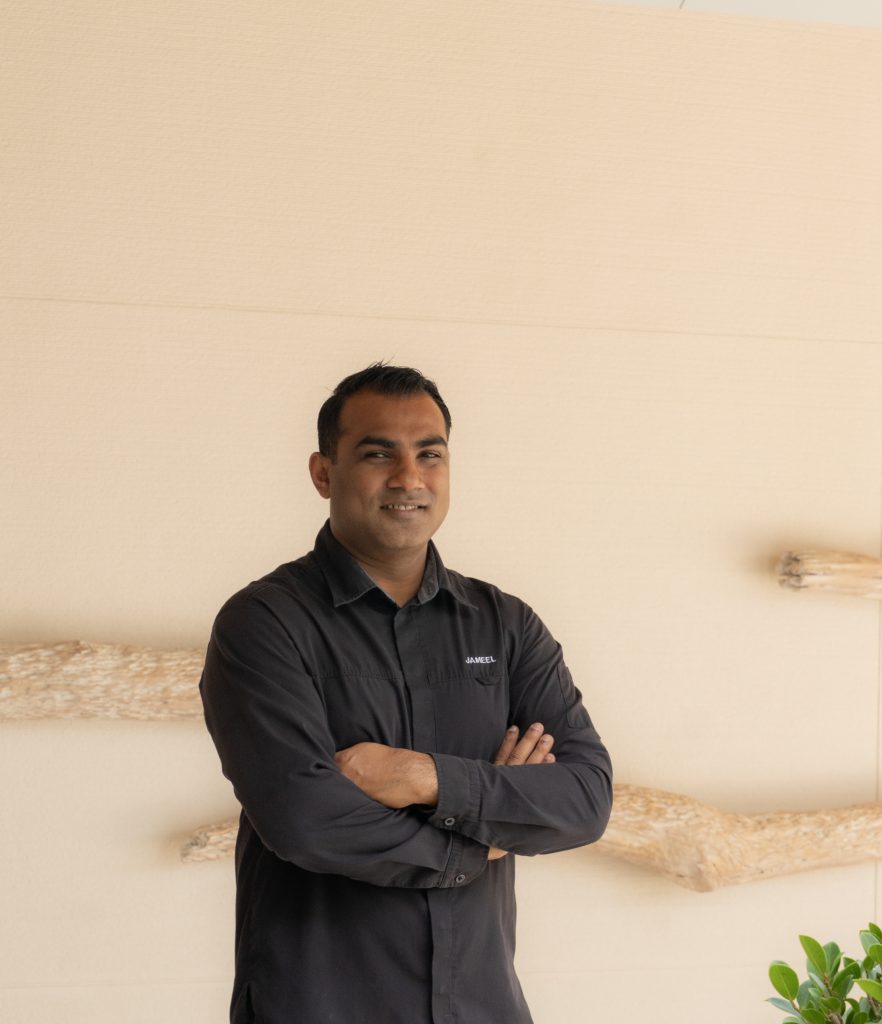
Set above crystal-clear Indian Ocean waters, Chef Nori’s Four-Hands Dining Experience offers an exclusive menu from two chefs who have greatly impacted TAPASAKE Maldives’ history. Chef Nori will feature modern Japanese cuisine through dishes like Sashimi Tartare and 5-Hour Steamed Abalone with Lobster, while Chef Jameel will demonstrate a harmonious blend of Japanese and Mediterranean flavours with his dish Truffle Crusted Spanish Sea Bass with Miso Foam. The two chefs will also collaborate on a Slow-Cooked Wagyu dish that will showcase both their unique specialties.
“We are thrilled to welcome Chef Nori back to TAPASAKE and the resort for these dining experiences,” say Jan B. Tibaldi, General Manager of One&Only Reethi Rah. “Bringing back one of the chefs behind the iconic concept of TAPASAKE’s cuisine will surely curate a truly special evening for our guests, especially our repeaters who knew Chef Nori from the restaurant’s early days.”
The Four-Hands Dining Experience will be held exclusively on 27 March and the Exquisite Night at the Sushi Bar will be held on 29 March, both at TAPASAKE Maldives, which will be open from 7.00pm to 10.30pm.
For pre-bookings and more information, please email guest.information@oneandonlyreethirah.com or call +960 664 8800. For more information about the resort, please visit oneandonlyreethirah.com.
Family
JW Marriott Maldives Resort & Spa presents Easter season of dining, discovery

Easter at JW Marriott Maldives Resort & Spa arrives as a season of renewal, set against a backdrop of turquoise waters and endless skies. From March 3 to 11, the resort unveils a carefully composed programme of culinary artistry and immersive experiences, designed for those seeking an elevated island retreat.
On this private sanctuary, Easter is reimagined as a time for gathering and reflection. For families, the resort’s Duplex Series, including the Two-Bedroom Duplex Beach Pool Villas and the Duplex Overwater Pool Villas, offers a sophisticated “home away from home.” These expansive, multi-level residences provide the space and privacy essential for multigenerational travel, ensuring that the joy of the season is shared in comfort beneath the open Maldivian skies.
The First Chapter: A Salutation to the Sea
The journey commences on Good Friday, April 3, with From the Sea. Hosted upon the Horizon Deck, this experience is less a dinner and more a sensory tribute to the Indian Ocean. As the sun dips below the lagoon, guests are invited to a ritual of purity
The Good Friday experience focuses on the simplicity of the sea. The menu features sustainably sourced seafood, prepared with precision to highlight natural flavours without pretence. Surrounded by panoramic lagoon views and the evening breeze, guests are invited to enjoy a rare moment of stillness, marking a serene start to the Easter season.
The Gathering: A Celebration of Togetherness
Easter Sunday on March 5 at Aailaa is a day defined by the ease of island life and the joy of a shared table. The morning begins with a celebratory breakfast featuring a curated selection of international specialties, followed by an evening Grand Buffet that balances traditional holiday favorites with modern, island-inspired creations.
Set against the backdrop of the turquoise lagoon, the day is designed for slow, meaningful moments. Whether it’s the lingering over seasonal desserts or the quiet comfort of a family dinner, the experience at Aailaa provides a refined space for guests to reconnect and celebrate the holiday in the heart of our tropical sanctuary.
Community by JW: A Garden-to-Table Journey
At the heart of the celebration lies a deeper connection to nature. Through the Community by JW initiative, guests are invited to reconnect with the land in the resort’s vibrant JW Garden.
Guided by the culinary team, participants harvest fresh herbs and seasonal ingredients before transforming them into interactive pastry creations. This immersive garden-led experience reflects the resort’s commitment to sustainability and mindful living, offering guests a meaningful way to engage with their surroundings while celebrating the essence of renewal.
A Sanctuary for Every Generation
The resort’s 60 private pool villas, each attended by a dedicated Thakuru (Butler), serve as a secluded base for the holiday. To explore the island’s natural beauty, guests of all ages are provided with complimentary bicycles, allowing families to wander the sandy paths at their own pace, from the quiet corners of the gardens to the water’s edge.
For younger explorers, the Family by JW Little Griffins’ Kids Club, one of the largest in the Maldives—offers a world of discovery with a rotating schedule of over 100 weekly activities. This allows parents the freedom to find their own balance through holistic wellbeing and island relaxation.
This Easter, JW Marriott Maldives Resort & Spa offers more than just a holiday; it provides a return to what matters most. It is a season defined by elegance, intention, and the simple, timeless beauty of life lived by the sea.
The Savor the Endless package elevates the stay with a USD 300 resort credit per stay, complemented by daily breakfast, a three-course lunch, and a three-course dinner for two at select restaurants. A one-time floating breakfast served in the privacy of the villa adds an indulgent highlight, while a 60% reduction on food at Hashi and Shio invites guests to explore the resort’s culinary offerings. Earn up to 40,000 bonus points for Marriott Bonvoy® member. Additionally, guests can get complimentary non-motorised watersports provide effortless enjoyment on the lagoon, alongside the attentive service of a dedicated Thakuru (personal butler), complimentary bicycles, and a one-time 30-minute photography session with one printed keepsake to preserve moments in paradise.
For more information, visit the resort’s website.
-
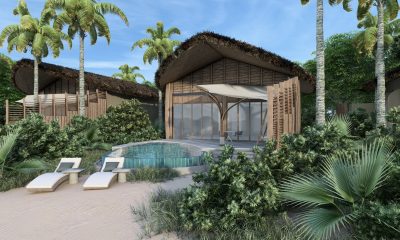
 News1 week ago
News1 week agoPulse Hotels & Resorts unveils Aura Maldives, a mindful luxury sanctuary
-
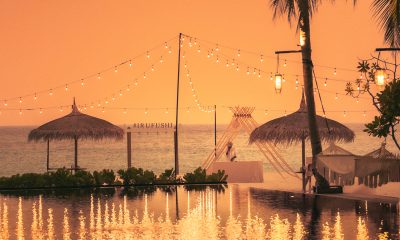
 News1 week ago
News1 week agoSun Siyam Iru Fushi sets new nenchmark with 24 Hour Premium All Inclusive Dine Around
-
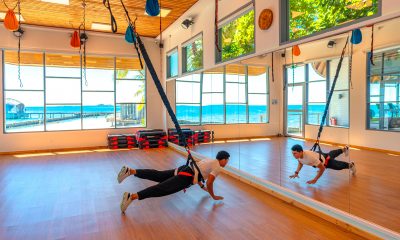
 Fitness1 week ago
Fitness1 week agoOUTRIGGER Maldives Maafushivaru launches expanded wellness programming for 2026
-
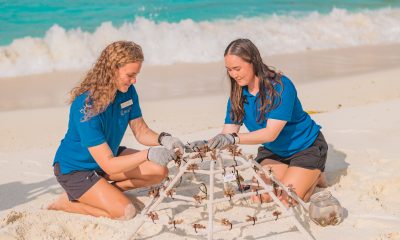
 Action1 week ago
Action1 week agoSheraton Maldives Full Moon celebrates sixth anniversary of Reefscapers collaboration
-
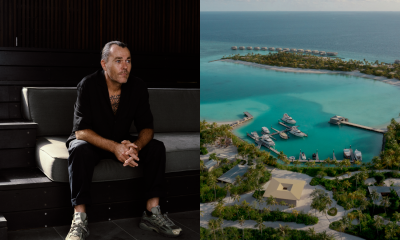
 Cooking1 week ago
Cooking1 week agoPatina Maldives hosts Chef Shannon Bennett for exclusive April residency
-
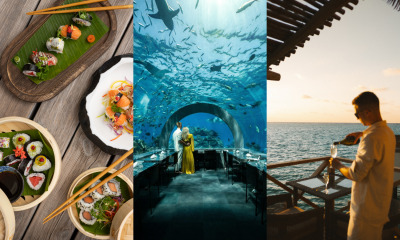
 Featured1 week ago
Featured1 week agoYou & Me Maldives unveils curated Premium All Inclusive programme
-
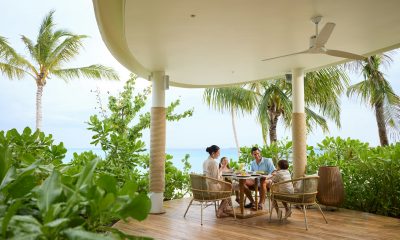
 Awards7 days ago
Awards7 days agoCentara Mirage Lagoon Maldives named Luxury Family Friendly Resort of the Year
-
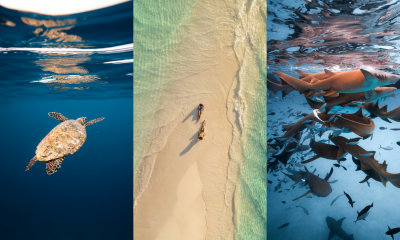
 Action1 week ago
Action1 week agoSun Siyam Vilu Reef unveils expanded marine excursion portfolio








